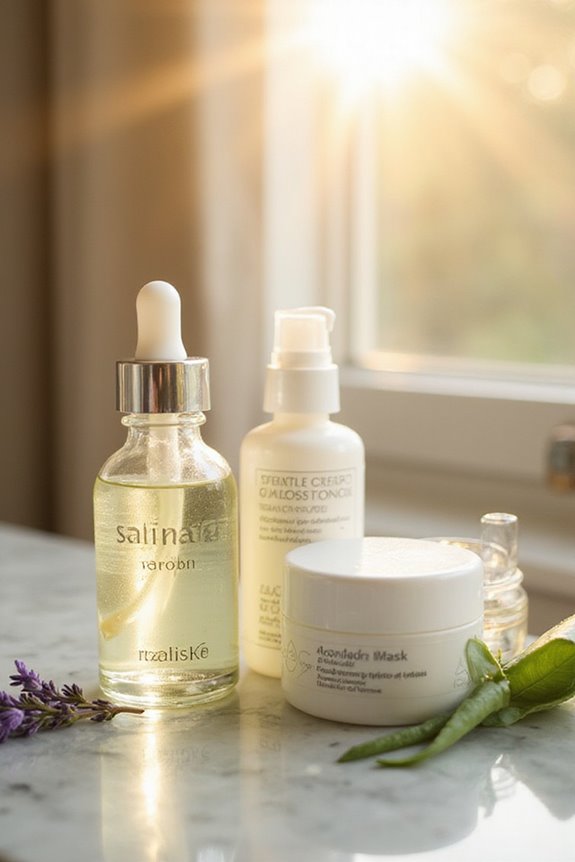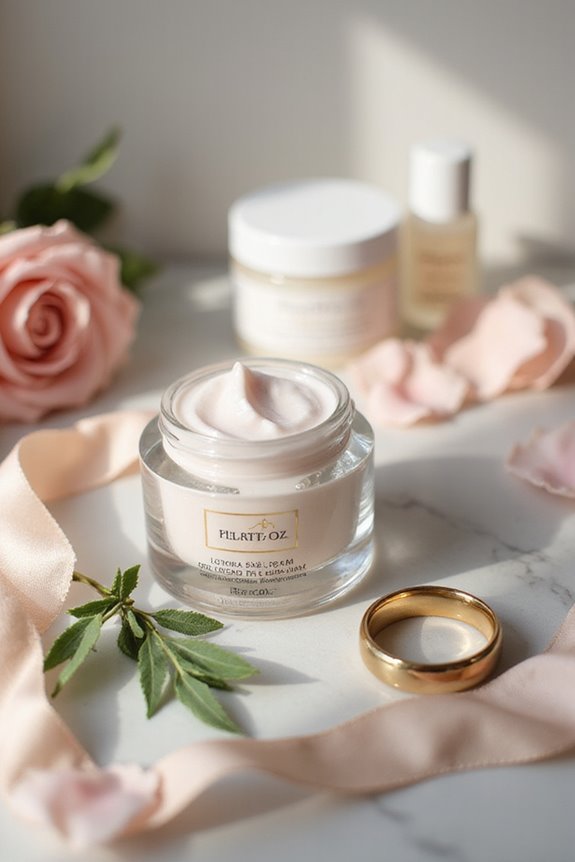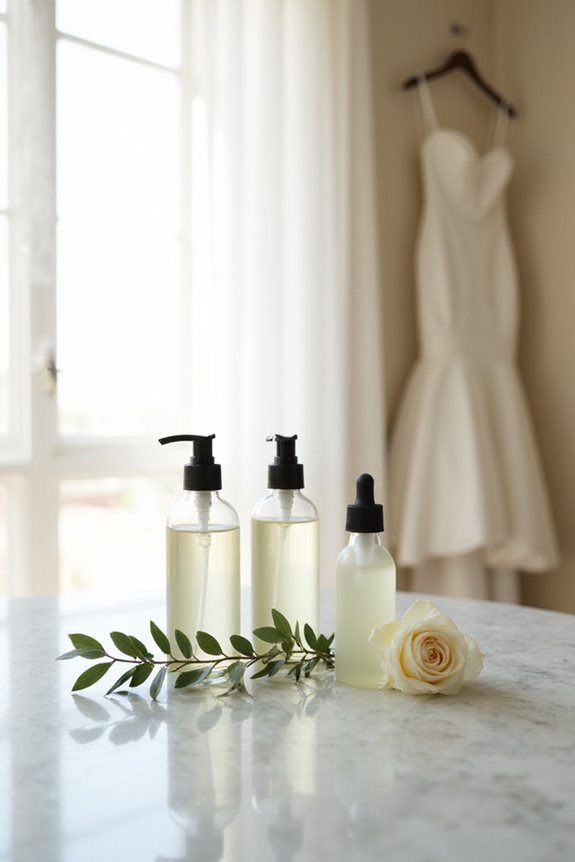When it comes to battling acne-prone skin, we’ve got some fantastic ingredients to contemplate. Benzoyl peroxide zaps bacteria, while salicylic acid unclogs those pesky pores. If you want to exfoliate, try alpha hydroxy acids for a smoother texture. For a gentler option, sulfur works wonders by reducing oil production. And don’t forget adapalene and its buddies; they prevent breakouts and tackle aging too. Curious about how to choose the right one? There’s more to uncover!
Key Takeaways
- Benzoyl Peroxide effectively kills acne-causing bacteria and unclogs hair follicles, making it suitable for mild to moderate acne.
- Salicylic Acid penetrates pores to shed dead skin and reduce excess oil, which is ideal for targeting blackheads and whiteheads.
- Alpha Hydroxy Acids (AHAs) exfoliate the skin by dissolving dead skin cell bonds, improving texture and brightening the complexion over time.
- Sulfur is a gentle, natural option that reduces oil production and promotes skin shedding, making it suitable for sensitive skin.
- Adapalene and other retinoids target acne deep within pores, improving skin texture and reducing fine lines with less irritation than traditional retinoids.
Benzoyl Peroxide: Effective Acne Fighter
When it comes to tackling acne, benzoyl peroxide is like that trusty friend who always has your back. Its benzoyl peroxide mechanism works wonders by breaking down clogged hair follicles and killing the pesky bacteria that cause breakouts. Plus, it promotes shedding dead skin cells, keeping our skin fresh.
For those of us dealing with mild to moderate acne, its treatment efficacy is impressive. We can use it alone or mix it with other treatments for an extra boost. Just remember, it might cause some dryness or irritation, so starting with a lower concentration is wise. And don’t forget sunscreen—our skin needs protection while fighting acne! With benzoyl peroxide, we’re one step closer to clearer skin.
Salicylic Acid: Unclogging Pores
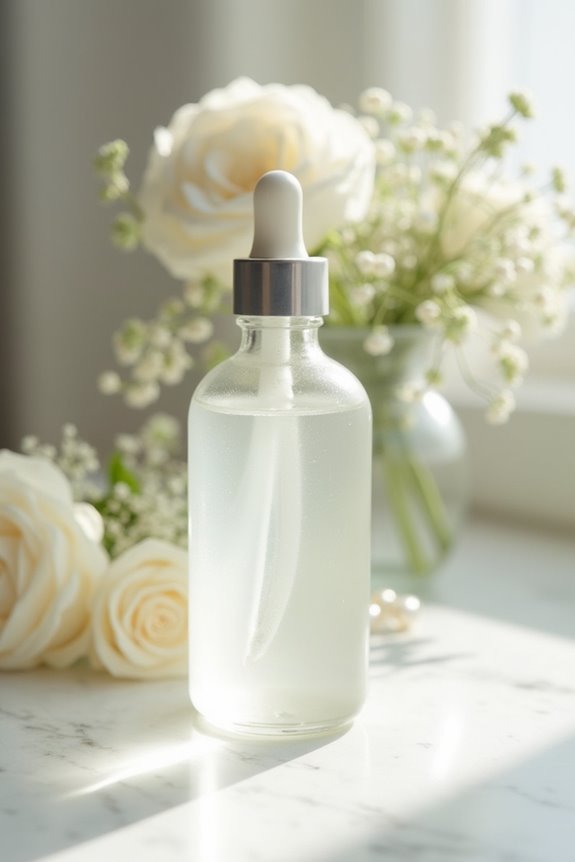
Salicylic acid is like your skin’s personal trainer, helping it shed the extra weight of dead skin and excess oil. One of the great salicylic acid benefits is its ability to clear clogged pores, targeting those pesky blackheads and whiteheads. It works by breaking down dead skin cells and reducing oiliness, making it a go-to for anyone dealing with acne.
For effective salicylic acid usage, start with a low concentration, applying once daily. As your skin adjusts, increase to 2-3 times a week. Just remember, a little goes a long way! If you experience dryness or irritation, don’t panic; simply adjust how often you use it. And don’t forget your sunscreen, as your skin might be more sensitive!
Alpha Hydroxy Acids (AHAs): Exfoliating for Clear Skin
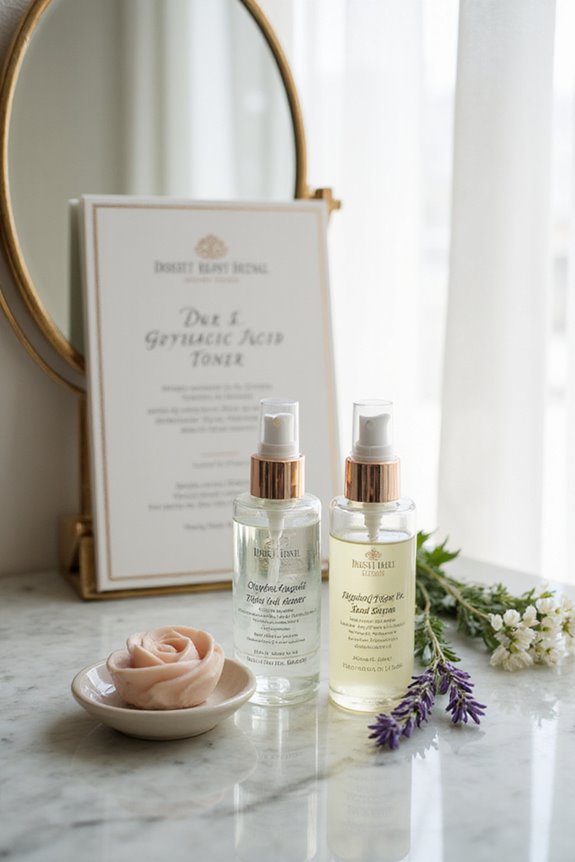
Alpha Hydroxy Acids, or AHAs, can be a game-changer for those of us dealing with acne-prone skin. These acids, like glycolic and lactic, work by dissolving the “glue” that holds dead skin cells together. This means fewer clogged pores and less acne! The AHA benefits don’t stop there; they also brighten our skin and improve texture.
When looking for AHA formulations, we should choose products specifically designed for acne-prone skin, like gels or peels. Adding hydrating ingredients like hyaluronic acid can help counteract any dryness. With consistent use, we might start seeing improvement in a few months—patience is key! So, let’s embrace those AHAs and say goodbye to dull skin!
Sulfur: A Natural Acne Solution
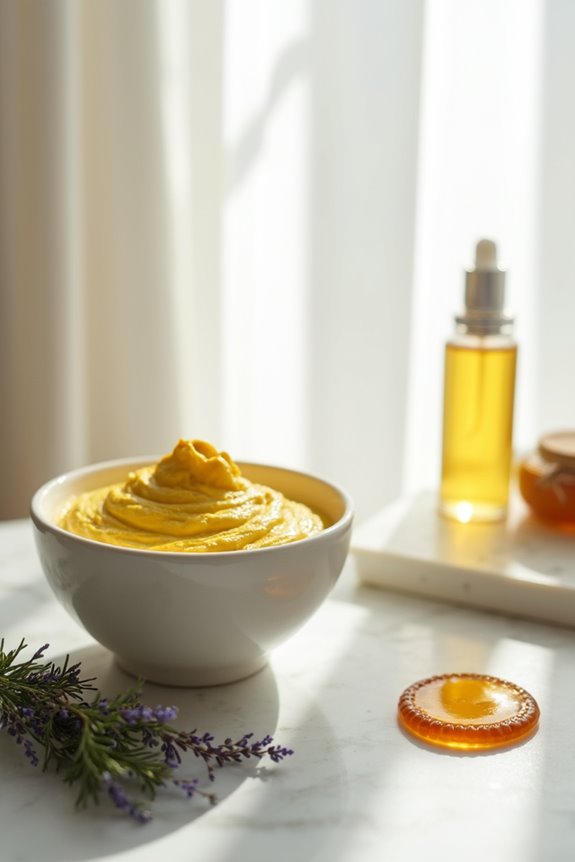
If you’re on the hunt for a natural way to tackle acne, sulfur might just be your new best friend. This powerful ingredient reduces oil production, which helps keep those pesky clogged pores at bay. Plus, sulfur’s keratolytic action gently sheds dead skin, promoting fresh, clear skin.
You’ll find sulfur in many over-the-counter acne treatments, like creams and masks, often combined with other ingredients for extra kick. If you have sensitive skin, it’s a great option, especially when harsher treatments feel like a wrestling match with your face.
Adapalene and Other Retinoids: Preventing Breakouts and Aging
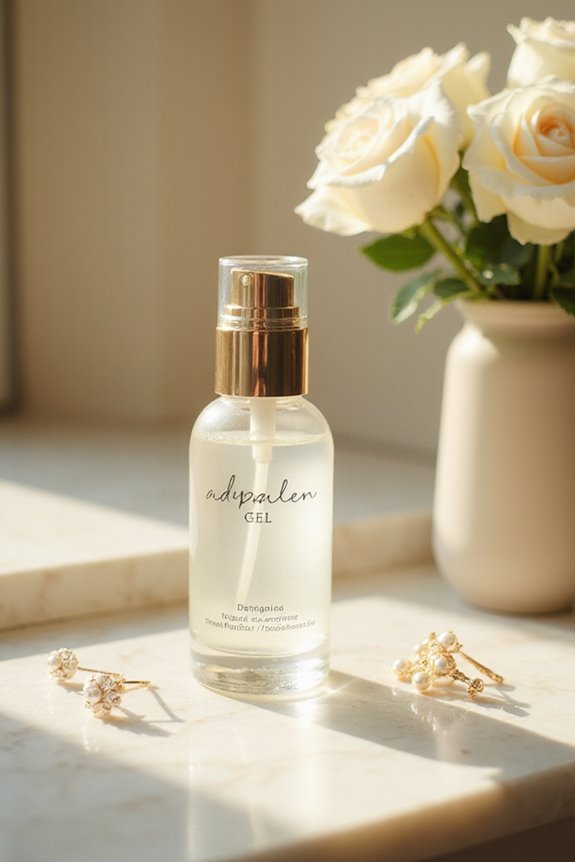
When it comes to tackling acne, we might feel overwhelmed by the options out there, but one ingredient that stands out is adapalene. This topical retinoid works wonders by targeting acne deep within our pores, helping to prevent breakouts before they even start. One of the best adapalene benefits is its ability to improve skin texture while reducing fine lines over time.
When we look at retinoids comparison, adapalene typically causes less irritation than tretinoin, making it a great option for sensitive skin. By incorporating adapalene into our skincare routine, we not only fight acne but also combat signs of aging. Just remember—it may take 8 to 12 weeks for noticeable results, so patience is key!
Frequently Asked Questions
Can I Use Multiple Acne Treatments Simultaneously?
Like a well-orchestrated symphony, we can enhance treatment effectiveness with combination therapies. Yes, we can use multiple acne treatments simultaneously, but let’s be cautious about irritation and follow guidelines for the best results.
How Long Does It Take to See Results From Acne Treatments?
It is understood that the acne treatment timeline can be tough. Typically, we should expect visible improvement in four to eight weeks, but full results may take months. Patience and persistence are key for lasting success.
Are There Any Side Effects of Using These Ingredients?
Did you know that nearly 50% of people experience side effects from acne treatments? We should be cautious of ingredient interactions and long-term effects, as dryness, irritation, and allergic reactions can arise from common ingredients.
Can I Use Acne Treatments on Sensitive Skin?
Yes, we can use acne treatments on sensitive skin, but we should choose gentle treatment options. Products containing soothing ingredients are essential, allowing us to effectively manage acne without exacerbating sensitivity or irritation.
When Should I Consult a Dermatologist for Acne?
Did you know 85% of people experience acne at some point? If we notice persistent acne triggers or ineffective treatment options, it’s time to consult a dermatologist for tailored solutions and to prevent long-term skin issues.

